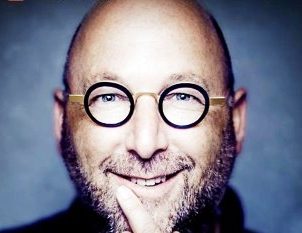
News

Beth Din has right to express its view
HOWARD FELDMAN
This decision has been the position of the rabbinate for the past 10 years.
My own response bothered me. A childhood reflex to reject being told what to do kicked in. Nothing would motivate me more to attend the conference (as a speaker) than being told not to – not that I am an orthodox rabbi (or any other kind). Meaning that the notification, or prohibition, wasn’t even aimed at me.
Last year, I was deeply critical of the fact that Limmud had invited speakers from the Boycott Divestment Sanctions (BDS) campaign to present at the conference. My concern was that many in the anti-Israel movement routinely deny a voice to those who support Israel.
Intimidation tactics, anti-Semitism, and even support of terror are not unknown, and I felt that to grant them a platform was to – quite literally – shoot ourselves in the foot.
Limmud ultimately withdrew the invitation.
At the time, I was challenged for the inconsistency of my approach. Why would I feel so strongly about issues relating to Israel, but not about issues relating to the preservation of core Judaism?
Why was it different, I was asked, to allow speakers to present when they might undermine some of the tenants of Torah and Judaism? The answer that I gave is that in the case of religious presentation, that debate is possible, whereas in the case of BDS, because of its approach, it isn’t.
But here’s a question: should it be an issue for the Beth Din to have a view on rabbinic attendance when it comes to Limmud? Is it wrong for it to say that a certain environment doesn’t reflect its values, and that for that reason, it won’t allow rabbinic council rabbis to attend?
It wouldn’t be the first organisation to do this. Yes, we might hate the very idea of “thought police” but to be clear, they aren’t telling us that we shouldn’t go. They are telling their members that they shouldn’t.
And whereas I might not like the approach or even agree with it, and whereas I might be convinced that there must be a solution to the quandary, I do wonder if I am within my rights to be outraged about it.
If we are so open to various views and standpoints, why is this the one viewpoint we reject? By definition, a speaker at Limmud might genuinely make a case for underwater yoga, or atheism being the only way to serve G-d, and we would tolerate it because we are “tolerant”, but a view from the rabbinate that relies on thousands of years of deep learning is something we reject out of hand.
I have never attended Limmud, but I hope to present there this year. That is my choice, and my decision to make.
I still hope the Beth Din and Limmud will be able to reach a compromise, perhaps one that involves a stream that they would be comfortable with. But in the absence of a solution, whether I like it or not, I need to make sure that I respect the Beth Din’s approach just as much as I respect the underwater yoga teacher or atheist.




